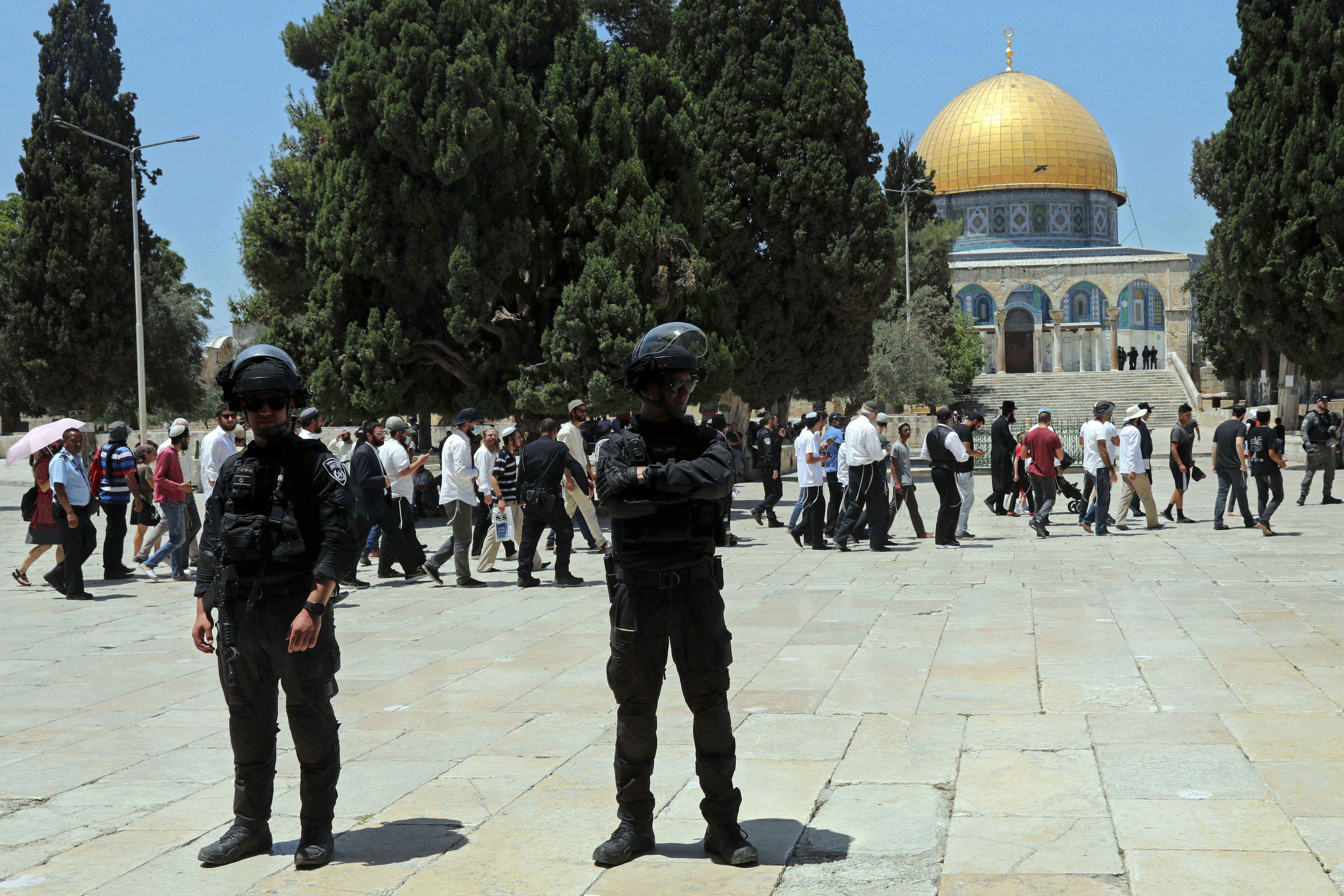Israeli PM: No change to ban on Jewish prayer at mosque
The office of Israel's new prime minister says he isn't changing the norms at a contested site in Jerusalem to allow Jewish prayer there

Israeli Prime Minister Naftali Bennett is not changing the norms at a contested site in Jerusalem to allow Jewish prayer there, his office said Monday, walking back comments that sparked angry reactions a day earlier.
Bennett, Israel's new premier, had raised concerns on Sunday when he said Israel was committed to protecting “freedom of worship” for Jews at the hilltop compound. Under a long-standing practice, Jews are allowed to visit — but not pray -- at the site, which they revere as the Temple Mount and which Muslims hold sacred as the home of the Al Aqsa Mosque.
Palestinians and the site’s Islamic authorities fear that Israel is slowly trying to take control of the area and have complained in the past that Jews continued to pray at the site. Friction remains high there after unrest helped spark the 11-day Israel-Hamas war in May.
Despite Bennett's phrasing, the status quo holds, according to an official in the prime minister's office who was not authorized to speak publicly and demanded anonymity.
The clarification came after a tense day in which hundreds of Jewish pilgrims visited the compound under heavy police guard to mark Tisha B'Av, a day of mourning and repentance when Jews reflect on the destruction of the First and Second Temples. The hilltop compound, they believe, is where the biblical Temples once stood and is the holiest site in Judaism.
Muslims revere the site as the Noble Sanctuary, home to the Al Aqsa Mosque and the third-holiest site in Islam. Earlier Sunday, Muslim worshippers briefly clashed with Israeli security forces at the flashpoint shrine.
No injuries were reported, but the incident again raised tensions. It came just days before Muslims celebrate the festival of Eid al-Adha, or Feast of the Sacrifice.
Bookmark popover
Removed from bookmarks